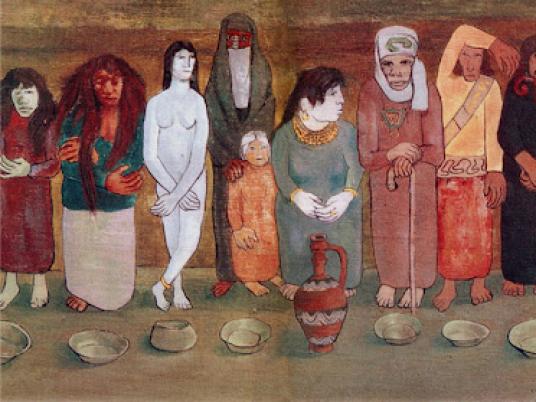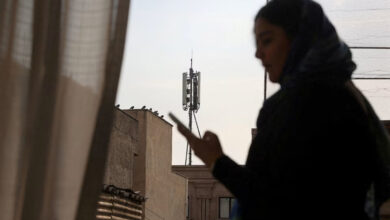
Anger surfaced this week after the Egyptian state's flagship newspaper Al-Ahram modified a famous painting by Abdel Hadi al-Gazzar by covering the breasts of a woman in it.
Artists and intellectual slammed the paper for the move, which was first reported last week by the Lebanese paper Al-Akhbar.
On Wednesday, a loose coalition of Egyptian intellectuals called the Egyptian Creativity Front issued a statement condemning Al-Ahram for the distortion of Gazzar 's "Popular Chorus" (Al-Kawras Al-Shaabi).
The Al-Ahram article, entitled "Popular Chorus against Injustice" and published on 12 June, discusses how Gazzar was arrested because of the painting in 1948. The painting, which addresses poverty, disappeared and he repainted it in 1951, it says.
Gazzar (1925-1966), one of Egypt's most renowned artists, is acclaimed by critics for pioneering the use of everyday Egyptian themes.
The Egyptian Creativity Front's statement described the paper’s "outrageous" act as being "incomprehensible and unjustified censorship."
It further argued that this act of censorship can be connected to Salafis' covering of nude Greek sculptures in Alexandria during rallies this week.
"We are not in a situation in which we are evaluating Abdel Hadi al-Gazzar's paintings or talking about its value or the value of the artist in the minds of those interested in art. But we just ask: Who allowed the painting to be distorted?" the statement said.
The statement added that Al-Ahram was a tool of the Mubarak regime and as the official newspaper of the now dissolved National Democratic Party, the regime’s media line of defense against the opposition.
According to the statement, the paper now seems to be looking for a new regime to be used by: In the rise of political Islam it saw an opportunity to reach out to the current most powerful entity, it decided to commit this hypocritical act as a precaution.




